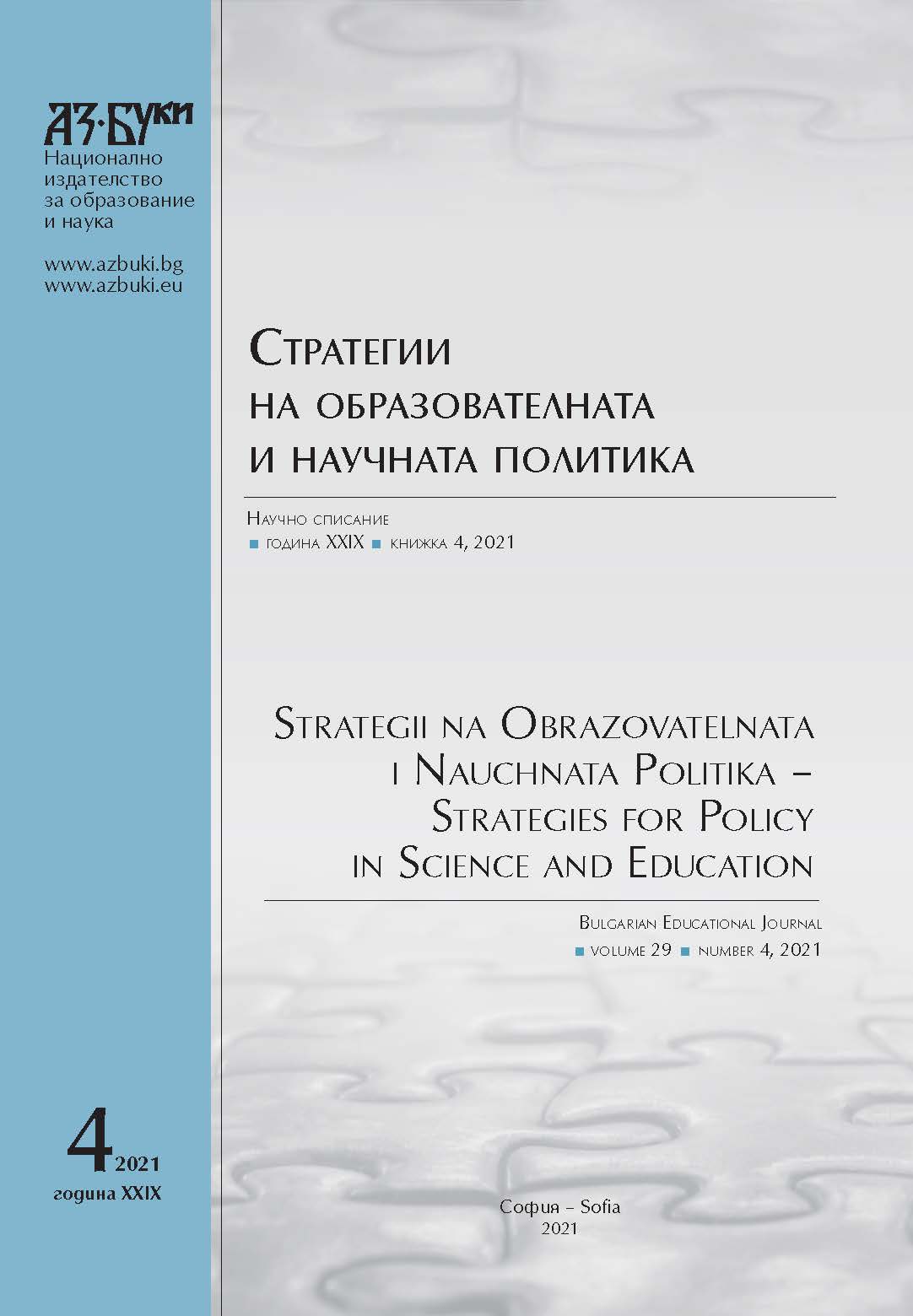
We kindly inform you that, as long as the subject affiliation of our 300.000+ articles is in progress, you might get unsufficient or no results on your third level or second level search. In this case, please broaden your search criteria.

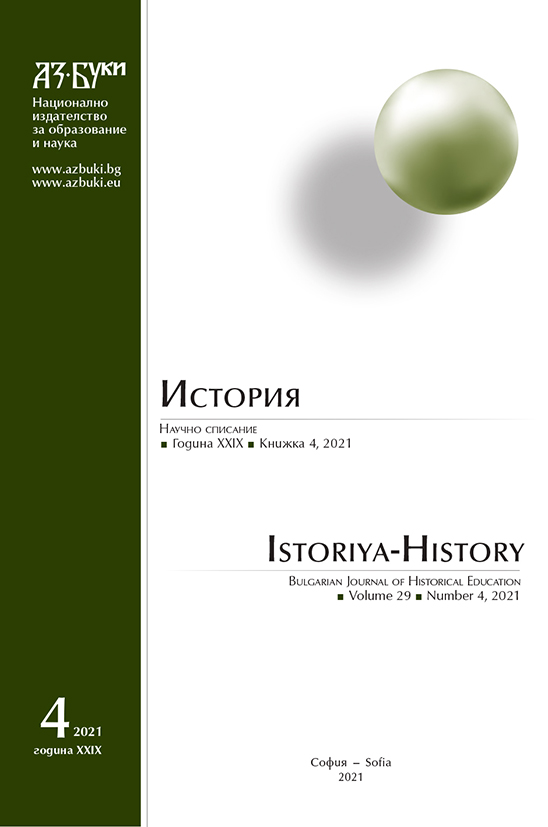
Digital learning has long been talked about. Unfortunately, an undesirable situation brought this idea to the fore. History is a subject with wide possibilities for visualization, which process occupies a central place in the digital learning. This publication examines some aspects of history teaching in the transformation of the learning process from a present to a digital environment, based on observations and personal experience over a year.
More...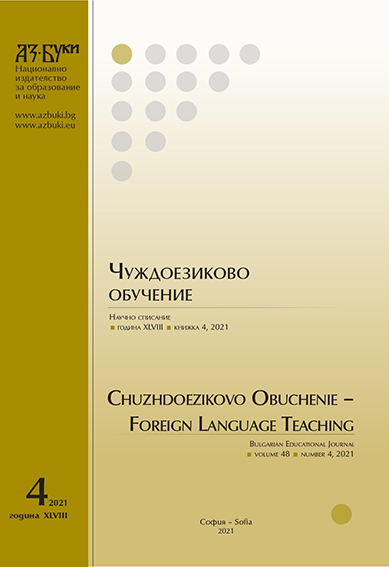
Universals as a continuation of the traditions of Russian novels of the 19th – 20th centuries. Universal meanings are clearly expressed in Russian novels of the 21st century and are conditioned by modern problems of society. Universal meanings are viewed through the prism of universal images and motives. The image of the wanderer as a universal image in the novels “Laurus”, “Aviator”, “Nenastye”, “Winter Road”, “Gods of the Steppe”.
More...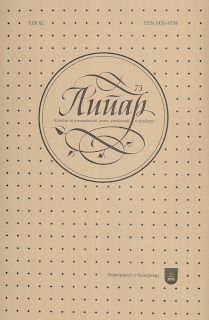
This article discusses reception and production of academic vocabulary among native speakers of Serbian language. Academic vocabulary is one of the key elements of academic language competence, and a modest lexicon and underdevel- oped academic language competence can cause problems in both comprehension and production. In this research, we used a vocabulary test consisting of 12 items taken from general culture entrance exams used at the Faculty of Philosophy, University of Belgrade. The participants are BA students of French language at the Faculty of Philology, University of Belgrade, years 1-4. The participants were instructed to provide a synonym or a definition for each item, as well as a sentence containing the given word. The aim of this research is to highlight issues in comprehension of academic vocabulary and establish the influence of factors such as word etymology or university level on the success of the participants. We analysed the results and classified them in three categories: correct, incorrect and unanswered. The majority of participants successfully identified just half of the given words (in order of success: poliglota 95,76%, bestseler 92,37%, pacifista 66,10%, suveren 58,47%, prototip 57,63%, elokventan 56,78%). The success level for the other half of the items from the test was below 50% (in order of success: erudita 49,15%, hipokrizija 39,83%, nepotizam 22,03%, skrupulozan 18,64%, šprahfeler 10,17%, eksproprijacija 8,47%). The influ- ence of etymology was analysed through a comparison of the results for six items of French/Latin origin with the results for the other six items which did not originate from Romance languages. This analysis shows that the participants had similar re- sults in both groups of items, with three words from each group having above 50% of correct answers (suveren, elokventan, pacifista; poliglota, bestseler, prototip). Lastly, we examined success levels from year 1, year 2, year 3 and year 4 students and de- termined that the median of correct answers for each year does vary, but that there is no strong linear progression (median year 1=5, year 2=6, year 3=7, year 4=6). The results indicate a lack of knowledge of academic vocabulary and difficulties in identifying and manipulating this type of lexis. We believe it is necessary to integrate academic language skills, including academic vocabulary, in high school curriculum and introduce Serbian language as a subject at university level.
More...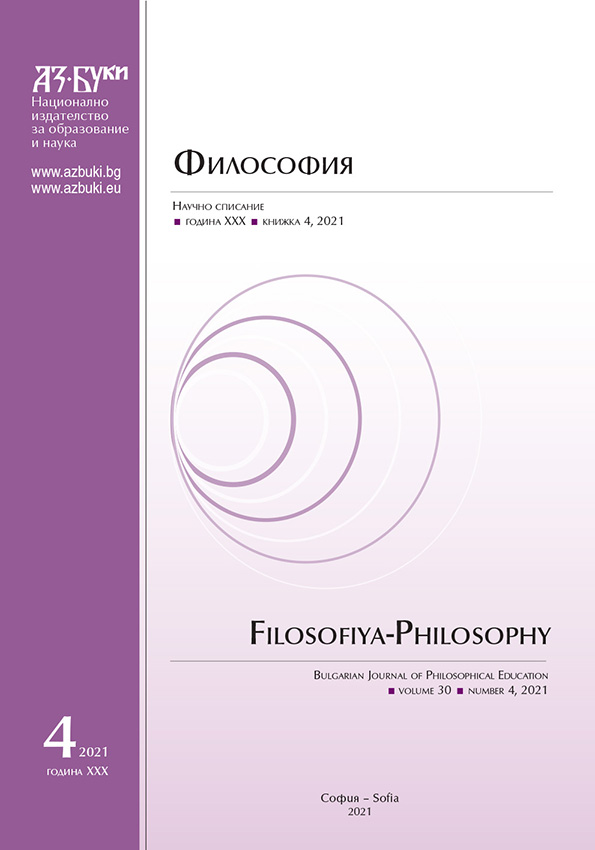
Recent anthropological studies consider the corporal experience as an indispensable attribute of a person’s life world. They declare to go beyond the dichotomy of body and mind and present a modern person as a complex integrity of all systems and characteristics of a living organism. Body and mind are a union of vitality with different forms of their manifestation. The corporal is not regarded as an essential complement to the mental, the corporal is the mental, just in a different form of its manifestation. The implementation of a methodological turn from a rational-cognitive approach to a holistic understanding of human nature and the peculiarities of cognitive processes outlines the problem of education transformation in both theoretical and practical terms. Taking into account the complexity and multiplicity of tasks in solving this problem, the guideline in defining conceptual ideas is the understanding of a person as a multi-temporal being who lives simultaneously in multiple hierarchical levels, ontological time and the scale of processes. It is a question of necessity to construct educational activity in semantic planes: mind-body-culture, mind-body-activity, body-consciousness-reaction and others.
More...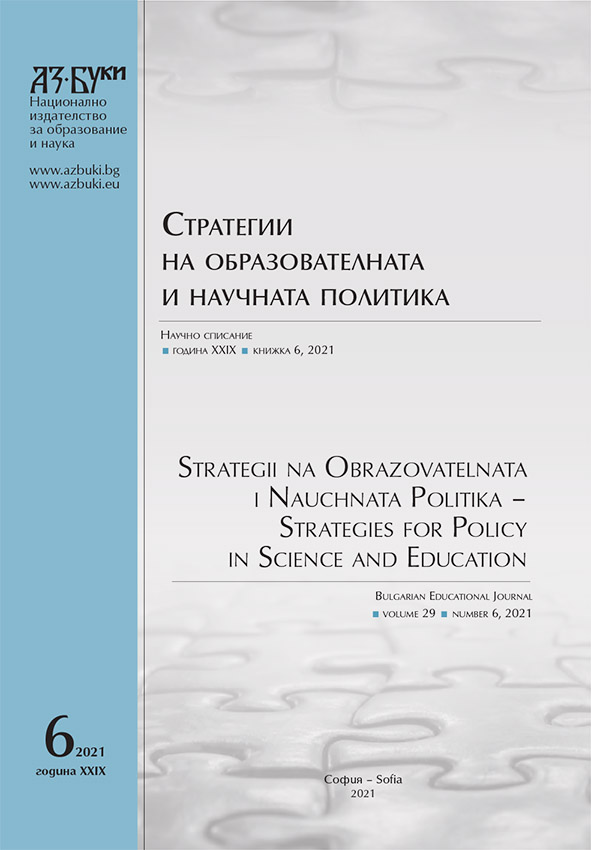

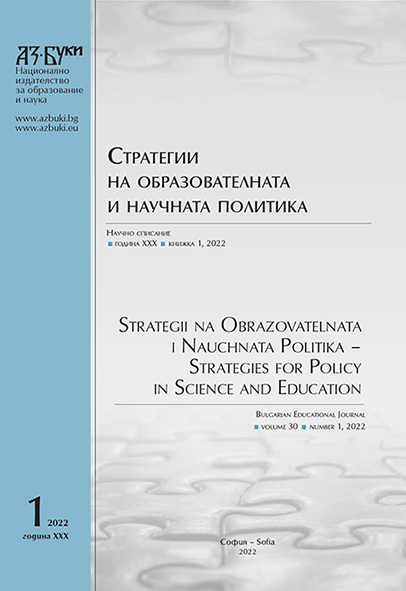
HIGHLIGHTS FROM AZ-BUKI’S JOURNALS IN OTHER SUBJECTS
More...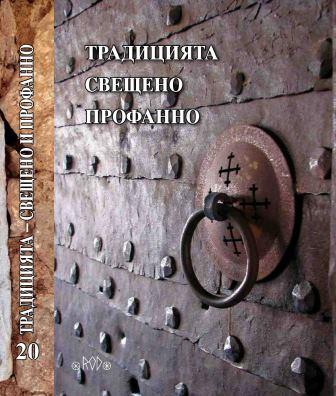
The report is written in connection to the language of a book “A Small Collection of a letters”, composed by the Bulgarian Revival writer Nicola Mikhaylovsky. The article exposes important grammatical peculiarities of the language of this text. The review shows that Nicola Mikhaylovsky contributes to the approval of a series of grammatical norms, inherent to the contemporary Bulgarian language.
More...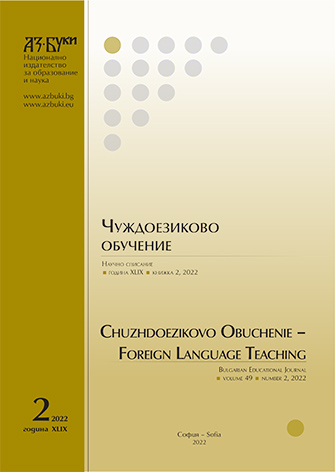
The explanation of merged and / or separate writing of words and phrases can only be achieved as a principled research position when the third axis in the coordinate system of language – the human consciousness, is taken into account. The syntactic orthographic principle explicitly introduces the cognitive approach, as the syntax expresses the cognitive need. This is a extremely sufficient justification for taking out of the vocabulary those supposedly complex words, but in fact word combinations, whose spelling is entirely and only syntactically justified – only separate writing.
More...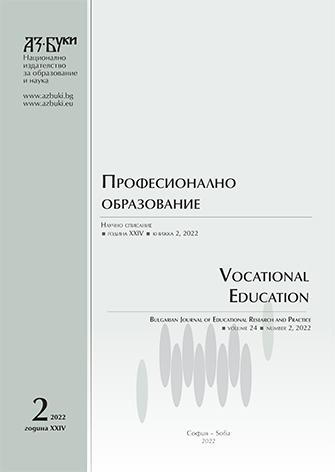
The article presents a lesson, which main purpose was to present data by tables and diagrams using computer program Excel. A test for defining the personality type of each student was made in advance by the school psychologist. On the basis of the collected data, the students had to make tables with the personality types of the class and also fill in the results during the lesson. The students also had to prepare column diagram using the information from the table deciding the design on their own. The purpose of this exercise was to check the ability of the students to use in practice their knowledge about the type of diagram they had already learned in previous lessons. The second type of diagram that they had to prepare was the pie. They had to use a format that shows the percentage of each sector. The goal of this exercise was to bind their knowledge from 5th grade with a future material they will learn in 6th grade about the pie diagram, and how to draw it. At the end of this exercise the students had to check if the percentage of the sectors coincides with the real number of people with that personality type and to conclude by themselves if the percentage was rounded or not.
More...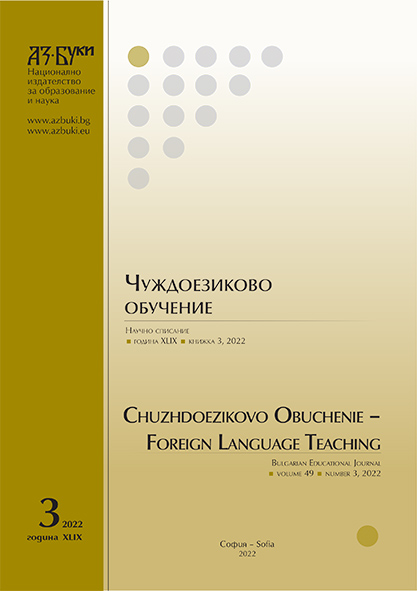
The aim of the article is to present the history of a French loanword, introduced in Bulgarian language by the poet-publicist Hristo Botev. The research is within the realm of diachronic empruntology, viewed as a science for tracking interlanguage lexical transfers in their chronological order. The object of research is the lexeme "francophile", in the process of work the method of empruntological diachronic analysis being applied, which includes establishing the first text fixation of the french loan in standard Bulgarian language. The fate of the word in French and in Bulgarian languages is presented. Parallelly with this different derivative forms, which are compared to their Bulgarian counterparts. The results obtained allow for reconstruction of Bulgarian language fate of the French lexical creation "francophile" in a formal and semantic perspective, allowing for comparison of connotative uses of the French loan word francophile.
More...
School is not only a means of transforming lives but also a mechanism for organizing them. It plays a key role in shaping social structures, including gender relations. Schools prepare students for the gendered division of labor, both at home and in the workplace, actively producing and reinforcing gender norms rather than merely reflecting existing social ideologies. According to Barrie Thorne, gender identities, masculinity, and femininity are socially constructed through various influences, including family, peers, media, and educational content. One crucial instrument in this process is the textbook, which communicates ideas about gender norms and roles selected from cultural and historical sources. Given its significant impact on shaping students’ perceptions, it is essential to analyze and evaluate textbooks for gender representation. Textbooks create a symbolic world where children spend hours daily, forming ideas about what is normal, acceptable, and appropriate. They serve as "training grounds" for real-life social roles. This study examines how gender is constructed in high school Romanian language and literature textbooks, comparing materials from before and after 2000. The research aims to determine whether these textbooks reinforce gender stereotypes explicitly or implicitly, despite existing non-discriminatory legislation. Main research question: Do Romanian language and literature textbooks reinforce gender stereotypes? Specific research problem: Do textbooks influence students’ behavior and perceptions of gender roles through the experiences they provide in formal education? Hypothesis: Despite non-discriminatory legislation in Romania, gender stereotypes persist in textbooks, both explicitly and implicitly. Methodology: The study analyzes four high school textbooks: two from the 1980s-1990s and two from the 2000s. The analysis focuses on gender representation in illustrations and text, identifying differences and similarities in how gender roles are portrayed over time. The research investigates the following:• The presence of male and female characters in illustrations• Gender-coded traits and behaviors• Gender-based interaction patterns• Representation of power and authority• Gender stereotypes in visual and textual content A total of 572 illustrations were examined, documenting gender representation through empirical indicators such as visibility, authority, stereotype reinforcement, and interaction patterns. Findings1. Gender representation in illustrations• Male characters dominate the visual content: 62% of illustrated characters are male, while 38% are female.• The most significant disparity appears in Manual 3, where 82% of illustrations feature males and only 18% feature females.• No textbook contains more female than male characters.2. Gender interaction and segregation• 78% of mixed-gender illustrations show interaction between male and female characters, suggesting no strong gender segregation.784• Male characters interact more frequently than female characters, reinforcing an active male/passive female dynamic.3. Representation of power and authority• Male characters appear more often in leadership roles, making decisions or guiding others.• Female characters are more frequently depicted as obedient or in subordinate roles (28 cases vs. 15 for males).• Men are portrayed as stronger and more independent, while women are associated with care and emotional support.4. Gender stereotypes and non-stereotypical representations• Traditional gender stereotypes dominate: men engage in public and professional activities, while women are shown in domestic roles.• Few counter-stereotypical representations exist, such as men engaging in household tasks or women participating in technical fields.5. Clothing and technological representation• Female characters predominantly wear dresses and skirts (74%), reinforcing traditional femininity.• Textbooks fail to reflect modern technological realities, with minimal references to contemporary devices like computers or mobile phones, even in post-2000 editions.6. Spatial representation (public vs. private space)• Men appear more frequently in public settings (30% of illustrations), reinforcing the idea of male dominance in professional and societal roles.• Women are more evenly distributed between public (36%) and private (26%) spaces, although some textbooks still emphasize traditional female domesticity. The study highlights several key patterns in gender representation in Romanian language and literature textbooks:• Male characters are overrepresented both numerically and in leadership roles.• Gender interaction is common, reducing segregation but maintaining male dominance in activity and authority.• Stereotypes persist, with women often confined to traditional domestic roles.• Textbooks shape gender identity by reinforcing societal norms through visual and textual content. Despite some progress, Romanian textbooks remain gendered instruments, subtly influencing students’ perceptions of masculinity and femininity. To foster a more equitable educational environment, future textbook revisions should actively address gender bias and promote diverse role models.
More...
Preschool children show sympathy, a certain degree of self-control, and occasionally a sense of fairness in sharing objects, [2,p.83]. Conscientiousness requires maturity and this moral feeling develops in school age and adolescence. There will emerge that personal integrity which we call character. The school's role is to cultivate emotional intelligence through therapy. Freeing the emotions, "will not be an easy task politically... given the turmoil they will create. But we must accept this or continue to raise generations of adults who ignore emotions and thus behave in destructive ways" [2, p. 105]. Preschoolers with language impairments have less access to social interaction, which in turn limits their opportunities to learn about their emotions and the emotions of others. Language barriers are disruptive factors in the expression of emotions and the consequences are seen in the behaviour and attitudes of young children.
More...
In an increasingly globalized world, the development of intercultural skills is a priority in foreign language education. Language learning goes beyond mastering grammar and vocabulary; it also involves the ability to understand, respect, and interact with different cultures. In the context of French as a Foreign Language (FLE), the use of philosophical texts provides a unique opportunity to address universal questions while raising learners' awareness of diverse cultural perspectives. This article proposes a didactic approach aimed at developing these skills through the analysis and discussion of philosophical texts.
More...
The article reflects the problem of training speech therapists with aphasic patients. The issue of training speech therapists in working with aphasic patients is a very important one because of the dramatic increase in the number of these patients and the worsening of stroke. Different problems faced by teaching staff in preparing future specialists are analysed. Main directions, contents, principles of theoretical and practical training are outlined. The main activity stages and their contents are analysed. A decisive role in the theoretical and practical training is the development of one's own opinion about the effectiveness of speech and language therapy intervention methods in aphasia.
More...
Knowing that interdisciplinarity is essentially a way to bring together flexible and interconnected strategies and logistics, which, in turn, capture the essence of the component part, at a given moment re-integrating the whole. In this context, responding to certain needs and keeping their competence and the imprint that defines them, psychology: environmental, ecological and ecopsychology, are found in terms of the relationship of man with the environment in which he lives, this being both physical and social. We thus try to answer the rhetorical question "I rule the world or the world rules me".
More...
Volunteering is an essential educational tool in the psychosocial development of students, offering them training opportunities through direct experience and interaction with the social and professional environment. This study explores the methodology, the methods, techniques and strategies used in the psychosocial training and development of the volunteers involved in the activities carried out within the Department for the Training of Teaching Staff (DPPD) of the University of ,,1 December 1918” in Alba Iulia.Research highlights how modern pedagogical methods, such as experiential learning, mentoring, collaboration and simulation training, contribute to the development of socio-emotional and cognitive skills. Also, the techniques used to develop communication, adaptability, leadership and emotional resilience, essential skills for integration into the educational and professional environment are analyzed.Psychosocial development strategies through volunteering are approached from an interdisciplinary perspective, emphasizing their impact on the training of future teachers and specialists in education. The results of the research emphasize the transformative character of the volunteer experiences, highlighting their role in strengthening the professional identity and the civic commitment of the students. This work offers a practical perspective on the implementation of volunteering as a method of personal training and development, highlighting its benefits for both participants and the educational community. The conclusions of the study support the need for systematic integration of volunteering into the initial training programs, as a complementary strategy of psychosocial and professional development.
More...
This article undertakes a comprehensive literature review to explore the complexities of managing and assessing collaborative group work in multicultural classrooms in the post-pandemic educational landscape. Anchored in Milton Bennett’s Developmental Model of Intercultural Sensitivity (DMIS) and Jude Carroll’s insights on educational mobility, the review critically examines the theoretical underpinnings and practical challenges associated with diverse learning environments. Bennett’s DMIS is employed as a framework to understand and navigate cultural differences within the classroom, while Carroll’s research provides an in-depth look at the adaptation challenges of educationally mobile students. Through a synthesis of existing literature, this paper proposes practical strategies for educators, aiming to enhance group dynamics and improve assessment methods in a way that promotes inclusivity and fairness. The goal is to enrich the academic discourse by providing a nuanced analysis of multicultural group work management and assessment, drawing from a wide range of empirical studies and case analyses.
More...
Learning the Romanian language as a foreign language is a continuous challenge, which also involves a deep psychological perspective on the part of the teachers because the students come from various cultures, have a different value system, are far from their environment and family, in a language unknown and a completely new culture. The student's desire to learn, the permanent help offered by the teaching staffand of course the individual study are some of the most important directions that can shape success. The challenges are therefore multiple, varied, contextual, but they can be successfully overcome through active involvement, enthusiasm, work, and perseverance.
More...